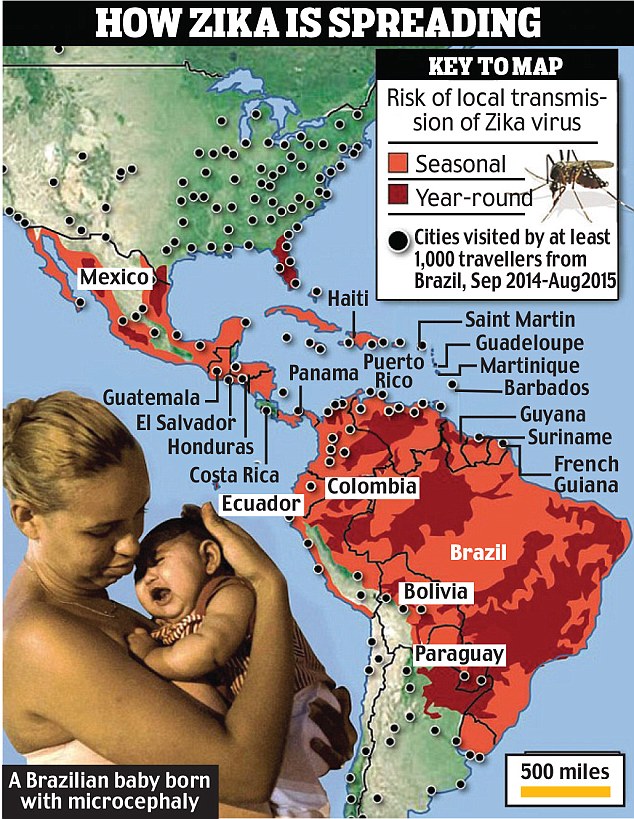The Irony of the Church's Advice to Women Around the Zika Virus

By:
The World Health Organizaion has called the outbreak of the Zika virus in Latin America an international health emergency, and some countries have responded by advising their citizens to do something shocking: Stop having children. (The virus has been blamed for a spike in babies born in Brazil with microcephaly, a serious birth defect.)
Many wondered whether strict laws surrounding abortion in countries such as Brazil would be reexamined and whether or not the Roman Catholic Church would change its opinion on birth control in these areas to protect Zika-infected women from potentially dangerous pregnancies.
 Daily Mail - co.uk
Daily Mail - co.uk
Clergy leaders in Latin America had remained relatively silent about the issue — until now, the week Pope Francis traveled to Mexico for the first time. Not surprisingly, the church is standing by its opposition to contraception and abortion.
“Contraceptives are not a solution,” Bishop Leonardo Ulrich Steiner, the secretary general of the National Council of Bishops in Brazil, told The New York Times. “There is not a single change in the church’s position.”
Steiner's advice? Chastity and natural family planning, a popular way for Catholic women to avoid pregnancy by tracking menstrual cycles and abstaining from sex during times of the month that would result in pregnancy. (Outside of the church, this was called the "rhythm method" of birth control.)
Is that good advice? A 2007 study in Science Daily found that natural family planning could be as effective as the pill if done right. But the United States Department of Health and Human Services suggested otherwise, reporting that the “failure rate for this method is 25 out of 100 women, whereas it is five out of 100 for birth control pills.”
The WHO predicted that 4 million people could become infected with the Zika virus by the end of 2016. If a pregnant woman is infected with the virus, it’s believed that her baby is likely to be born with microcephaly, which involves brain damage and an abnormally small head.
The virus remains a fairly new threat, and there's very little research about it. Tom Frieden, director of the U.S. Centers for Disease Control and Prevention, underscored in one tweet just how scarce Zika research is:
The New York Times recently ran an FAQ on the Zika virus and suggested that if you’re of “childbearing age, but not pregnant and not planning to get pregnant,” you should only travel to an affected country if you’re on birth control and vigilant about taking it on time.
For its part, the Roman Catholic Church believes that birth control violates God’s “natural law” that sex is for procreation and that using contraception to prevent pregnancy is wrong.
It had been speculated that Pope Francis would discuss the virus with local Catholic leaders and ways to best protect Catholic women and babies during his trip to Mexico this week. Unfortunately for devout Catholic women in Latin America, mosquitos simply don’t discriminate. Catholic or not, anyone can be infected.
